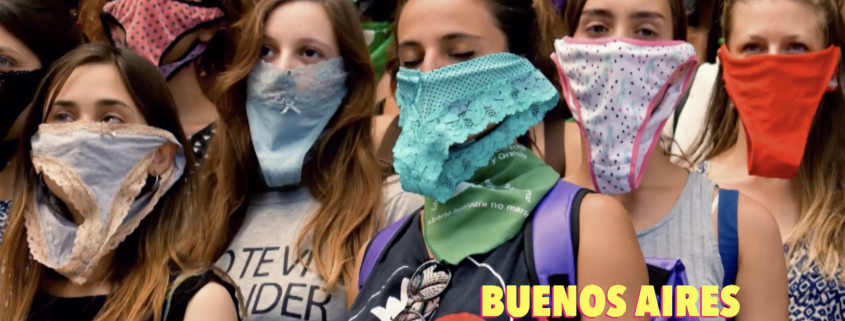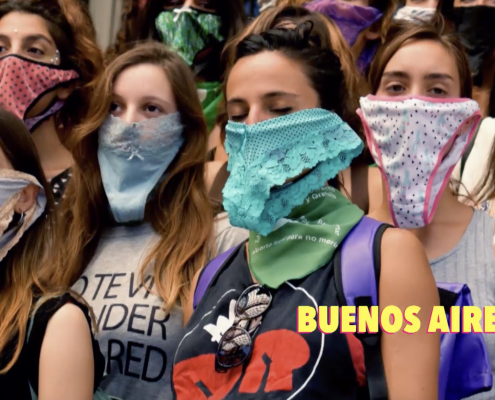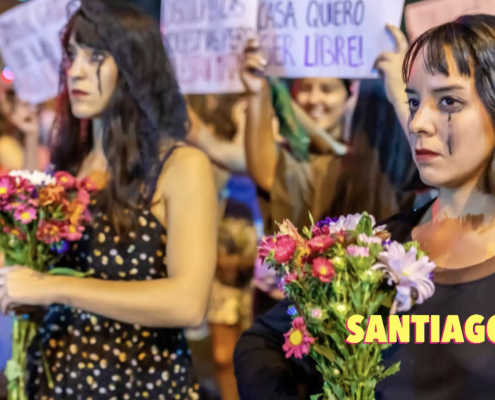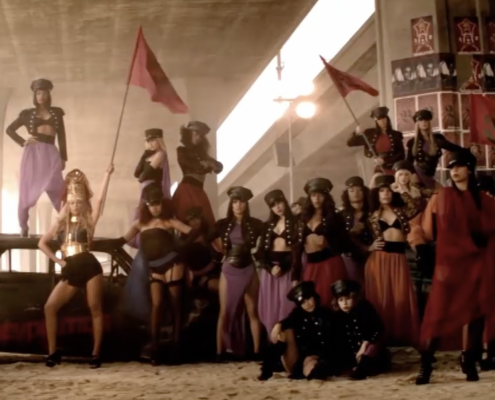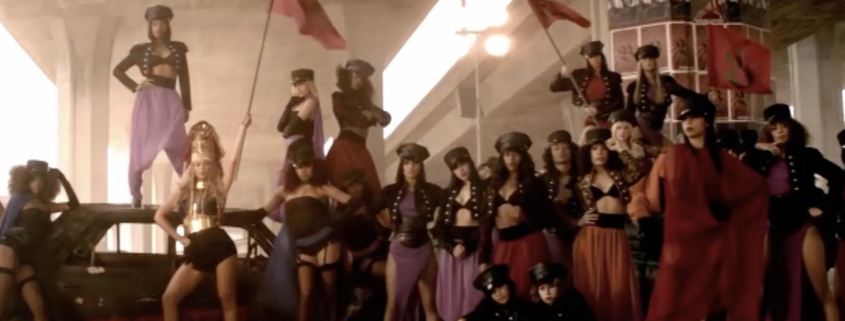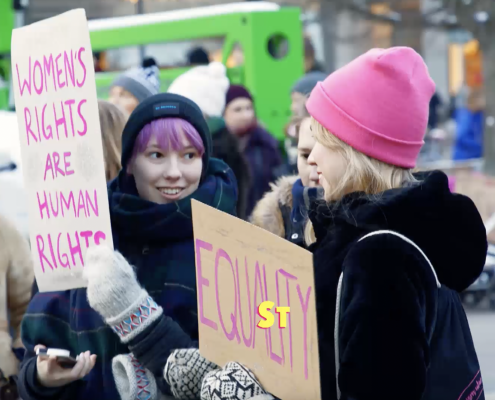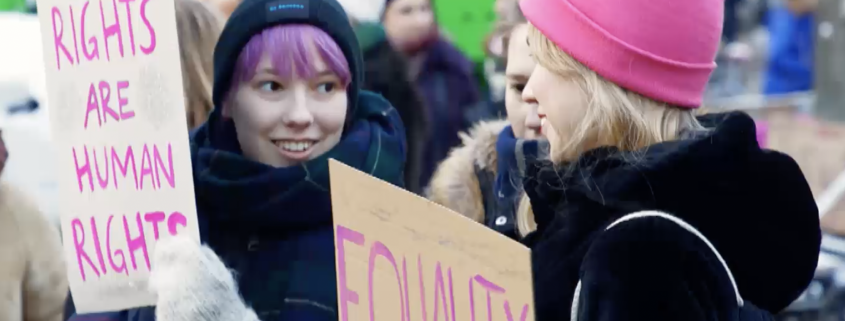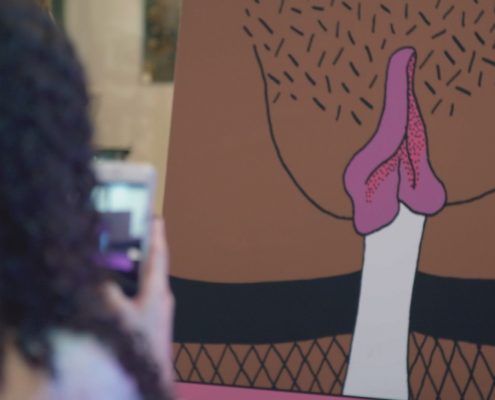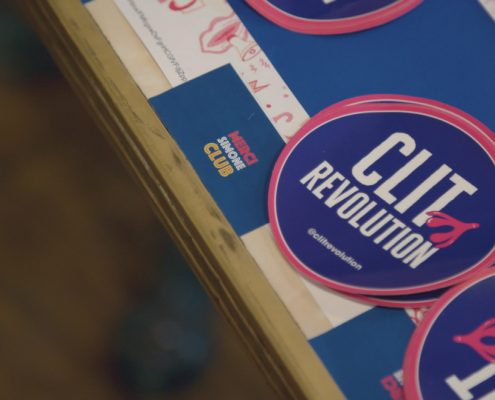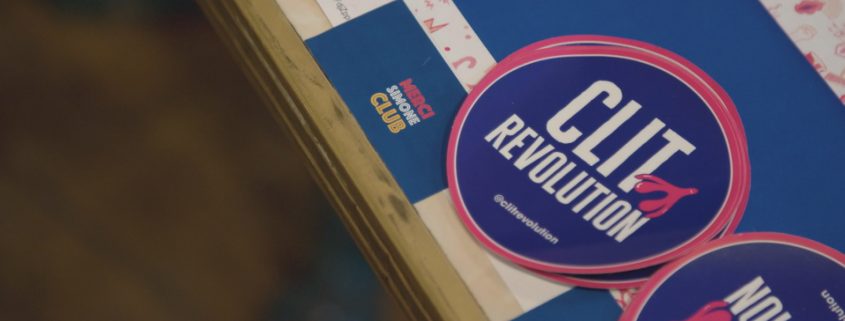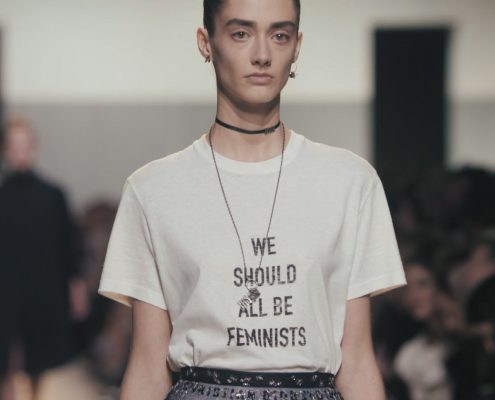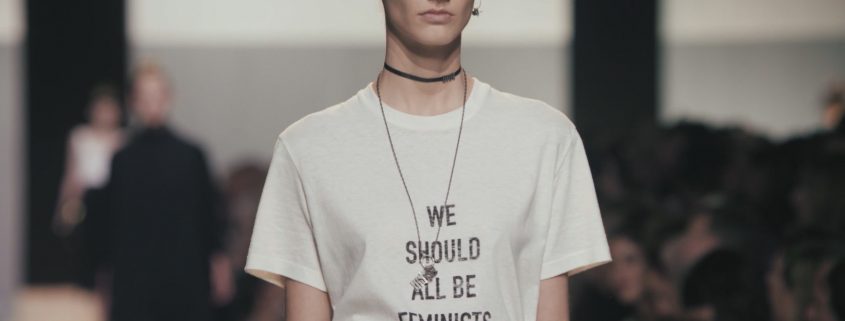POP FEMINISM
Oggi il femminismo sta vivendo una rinascita spettacolare che si riflette in tutti i campi della cultura pop. Moda o rivoluzione? La voce narrante dell’attrice Aïssa Maïga accompagna la scoperta di questo strabordante movimento di massa.
Il punto di partenza è l’orribile vicenda di Harvey Weinstein, che ha liberato la voce delle donne: a migliaia sono scese in piazza in tutto il mondo per denunciare le violenze subite, cantando a squarciagola che le ragazze governano il mondo. Il successo di Beyoncé Run the World (Girls) ha sostituito Debout les femmes, l’inno francese del Movimento di Liberazione delle Donne. Il femminismo oggi si incarna nella cultura pop, dalle classifiche alle sfilate di moda, dalla letteratura ai successi di Hollywood. Dopo che le Spice Girls, sulla scia del collettivo punk Riot Grrrl, hanno reso popolare il “Girl Power”, negli anni Novanta pop star come Madonna, Cyndi Lauper e Neneh Cherry hanno intonato liberatori cori femministi. La femminista potente, indipendente e determinata, il cui mantra è l’empowerment, è presente nei video musicali, al cinema (Mad Max: Fury Road, Wonder Woman, etc.) e persino sulle magliette di Dior, con messaggi evocativi come “We should all be feminist”, motto ripreso dal titolo del saggio della scrittrice nigeriana Chimamanda Ngozi Adichie. Dopo l’ondata del #MeToo, il tono delle rivendicazioni è divenuto più diretto e intimo, dall’universo pungente della cantante belga Angèle, che con Balance ton quoi fa riferimento al #MeToo, al rap di Chilla, che nei suoi testi pone al centro la lotta contro il patriarcato e le rivendicazioni femministe (Si j’étais un homme, Sale chienne, ecc.). Il corpo è diventato il fulcro dell’emancipazione femminile, con la ricerca dell’orgasmo e l’ipersessualizzazione veicolata dai testi delle rapper Cardi B e Nicki Minaj, e il movimento “body positive” guidato dalla top model Emily Ratajkowski che incita all’accettazione di sé. Attraverso gli incontri con le protagoniste di questo movimento (cantanti, attrici, scrittrici) e le analisi illuminanti di storiche e giornaliste (Florence Montreynaud, Leïla Slimani, Bibia Pavard), il documentario offre una panoramica energizzante sul femminismo moderno, ribelle, edonista e sexy, senza sottrarsi alle controversie che lo agitano.
Replica sabato 19 giugno ore 21.00 Sala 2
Today, feminism is experiencing a spectacular renaissance which is reflected in all fields of pop culture. Fashion effect or revolution? The narrative voice of the actress Aïssa Maïga makes us take a pleasant dive into this overwhelming mass movement.
The horrible story of Harvey Weinstein freed the word of women: thousands took to the streets all over the world to denounce the violence they suffered, singing out loud that girls run the world. How did Beyoncé’s hit Run the World (Girls) replace the anthem of the Women’s Liberation Movement, Debout les femmes? How does 21st century feminism embody itself in pop culture, from charts to fashion shows, from literature to Hollywood blockbusters? What do the icons say about the battles and debates that animate it? After the Spice Girls, in the wake of punk collective Riot Grrrl, popularized “Girl Power”, in the 1990s pop stars like Madonna, Cyndi Lauper and Neneh Cherry sang liberating choruses. The powerful, independent and assertive feminist, whose mantra is “empowerment”, appears in music videos, in cinema (Mad Max: Fury Road, Wonder Woman, etc.) and on Dior t-shirts, with evocative messages like “We should all be feminist”, motto borrowed from the title of an essay by Nigerian writer Chimamanda Ngozi Adichie. After the wave of #MeToo, the tone of the claims has become more direct and intimate, from the pungent universe of the Belgian singer Angèle, who with Balance ton quoi refers to the #MeToo movement, to the rap flow of Chilla, who in her texts focuses on the struggle against patriarchy and feminist claims (Si j’étais un homme, Sale chienne, etc.). The body becomes the center of female emancipation with the search for orgasm and hypersexualization conveyed by the texts of rappers Cardi B and Nicki Minaj and the “body positive” movement led by supermodel Emily Ratajkowski who reclaims self-acceptance. Through the meetings with the protagonists of this movement (singers, actresses, writers) and the enlightening analyses of historians and journalists (Florence Montreynaud, Leïla Slimani, Bibia Pavard), the documentary offers an energizing overview of modern, rebellious, hedonistic and sexy feminism , without withdrawing from the controversies inside it.
Rerun Saturday June19th h. 21.00 Hall 2

